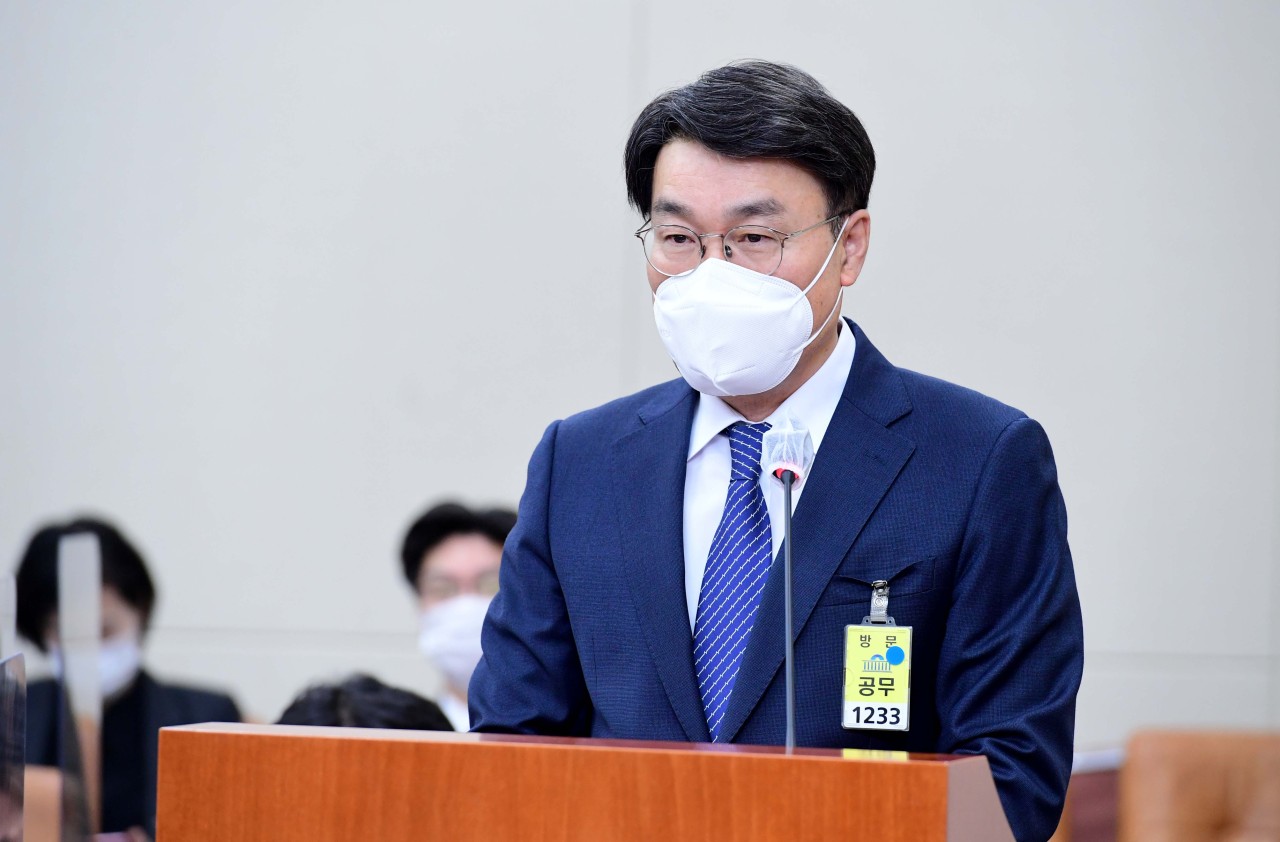 |
Posco Group Chairman and Posco CEO Choi Jung-woo. (Yonhap) |
For Posco Group, South Korea’s sixth-largest conglomerate in assets, the core agenda of its shareholders’ meeting this week is whether incumbent chief Choi Jung-woo will succeed in extending his term in office, in spite of growing political pressure and labor backlash.
Signaling the start of the proxy season this month, the group’s flagship steelmaker Posco will hold its 53rd annual shareholders’ meeting at its headquarters in Seoul’s Gangnam-gu at 9 a.m. Friday.
In December last year, Posco’s board of directors made the unanimous decision to name Choi -- chairman of the group and CEO of the steelmaker -- the next CEO.
His renomination seemed to pick up momentum as the steel industry took an upturn amid the post-coronavirus market surrounding. It also came as the group added fuel to its eco-friendly hydrogen business drive and business portfolio diversification.
Casting a shadow on his path, however, was the brawl over industrial accidents that occurred in manufacturing sites, which brought the group chief to a related parliamentary hearing last month.
More recently, some local labor unions and liberal civic groups raised the suspicion that Choi and some executive members used confidential information to purchase Posco’s stocks at a profitable market price. The company strongly denied the allegations, saying that they are “unfounded.”
“Neither Chairman Choi nor the executives (in question) have made profits as they still hold their shares since acquiring them in March last year,” company officials said.
“Should there be a prosecutorial probe on this case, we will cooperate in all sincerity.”
But despite such challenges, market observers forecast that Choi will likely prolong his leadership and spearhead the group’s growth in eco-friendly transition over the upcoming years.
“Given the high proportion of foreign investors in Posco‘s stake, Choi is likely to face little problem in getting reappointed,” said an industry observer.
“Foreign buyers largely tend to prioritize financial factors such as stock prices and growth potentials when making proxy decisions.”
The steelmaker is anticipated to surpass the 1 trillion won ($879.8 million) mark in quarterly operating profits for the January-March period this year, marking the first of this kind of case in more than a year, according to market tracker FN Guide.
Also, Glass Lewis and Institutional Shareholder Services -- the world’s two largest consulting firms on proxy voting rights -- last week issued a statement to advise in favor of Choi’s reappointment. As the consulting agencies mostly base their investment statements on shareholders’ best interests, it is the usual practice for foreign investors to abide by their recommendations.
The top shareholder for the steelmaker is the National Pension Service, the country’s top institutional investor, which holds 11.75 percent in stake, followed by Citibank Korea. Accounting for a majority of 74.3 percent are minor shareholders.
Political circles and labor unions previously called on the NPS to act on its stewardship code, adding pressure on the institutional investor to veto Choi’s reappointment.
The NPS, however, has recently vowed to remain neutral on the issue, leaving the leadership agenda to the hands of minor shareholders.
By Bae Hyun-jung (
tellme@heraldcorp.com)








